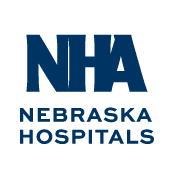Critical Access Hospital Conditions of Participation, Four-Part Series (W4001)
Dates: Tuesdays, January 16, January 23, January 30, & February 6
Time: 9:00 a.m. – 11:00 p.m. CT
Cost: $595 to NHA members (Per hospital, no charge for additional lines. Those individuals interested in viewing the recording must register separately at the Zoom link prior to the start of the webinar. Zoom will send each individual registered an email containing an access code to view the recording.)
Course Curriculum:
Critical Access Hospitals (CAHs) must comply with the Centers for Medicare & Medicaid Services (CMS) Conditions of Participation (CoPs) located in Appendix W of the CoPs manual. This four-part webinar series will cover the CAH CoPs manual as well as the regulations and interpretive guidelines that serve as the basis for determining compliance.
There were multiple changes and new regulations for CAHs in 2020, including a change to all tag numbers in the manual. Many of the new tag numbers do not include interpretive guidelines or survey procedures. Other changes included 25 new tag numbers in infection prevention and control and antibiotic stewardship and 10 new tag numbers in QAPI. The regulations for Swing Bed changes are limited to Appendix W, but the interpretive guidelines and survey procedures are in Appendix PP.
This series will supplement efforts to comply with challenging areas, including nursing care plans, necessary policies and procedures, medication carts and drug storage, informed consent, and medication administration. Finally, attendees will learn what to do when a surveyor arrives at their facilities.
Learning Objectives:
Part One:
• Describe that CMS requires that the Board enter into a written agreement for telemedicine services.
• Recall the worksheets that a CAH can utilize as a self-assessment tool to enhance compliance efforts.
• Recite that CMS has a list of emergency drugs and equipment that every CAH must have.
• Recall that all CAHs must comply with EMTALA requirements.
• Discuss that the average length of stay in a CAH should not exceed 96 hours on an annual basis.
Part Two:
• Explain the responsibilities of the pharmacists that include developing, supervising, and coordinating activities of the pharmacy.
• Describe the requirement for CAH to utilize compounding pharmacies.
• Recall the requirements for security and storage of medications, medication carts and anesthesia carts.
• Discuss the requirement for dietary to meet the nutritional needs of patients.
Part Three:
• Recall that the infection preventionist must be appointed by the board.
• Discuss that insulin pens can be used on only one patient.
• Describe that an order is needed to allow the patient to self-administer medications.
• Explain the three-time frames in which to administer medications.
• Discuss that CMS requires that a plan of care be completed.
Part Four:
• Describe the requirements for history and physicals for CAH.
• List what must be contained in the operative report.
• Discuss what the CAH must do to comply with the requirements for notification of the organ procurement (OPO) agency.
• Recall that CMS patient rights are in the Swing Beds section of the manual.
Intended Audience:
Chief Medical Officer, Chief Nursing Officer, Compliance Officer, Emergency Department Personnel, Joint Commission Coordinator, Medical Records, Quality Improvement personnel, Risk Manager, Legal Counsel.
Faculty:
Laura A. Dixon served as the director of risk management and patient safety for the Colorado Region of Kaiser Permanente. Prior to joining Kaiser, she served as the director, facility patient safety and risk management and operations for COPIC from 2014 to 2020. In her role, she provided patient safety and risk management consultation and training to facilities, practitioners, and staff in multiple states.
Dixon has more than 20 years of clinical experience in acute care facilities, including critical care, coronary care, peri-operative services, and pain management. Prior to joining COPIC, she served as the director, Western region, patient safety and risk management for The Doctors Company in Napa, California. In this capacity, she provided patient safety and risk management consultation to the physicians and staff for the western United States.
As a registered nurse and attorney, Dixon holds a Bachelor of Science degree from Regis University, RECEP of Denver, a Doctor of Jurisprudence degree from Drake University College of Law, Des Moines, Iowa, and a Registered Nurse Diploma from Saint Luke’s School Professional Nursing, Cedar Rapids, Iowa. She is licensed to practice law in Colorado and California.
This speaker has no real or perceived conflicts of interest that relate to this presentation.

